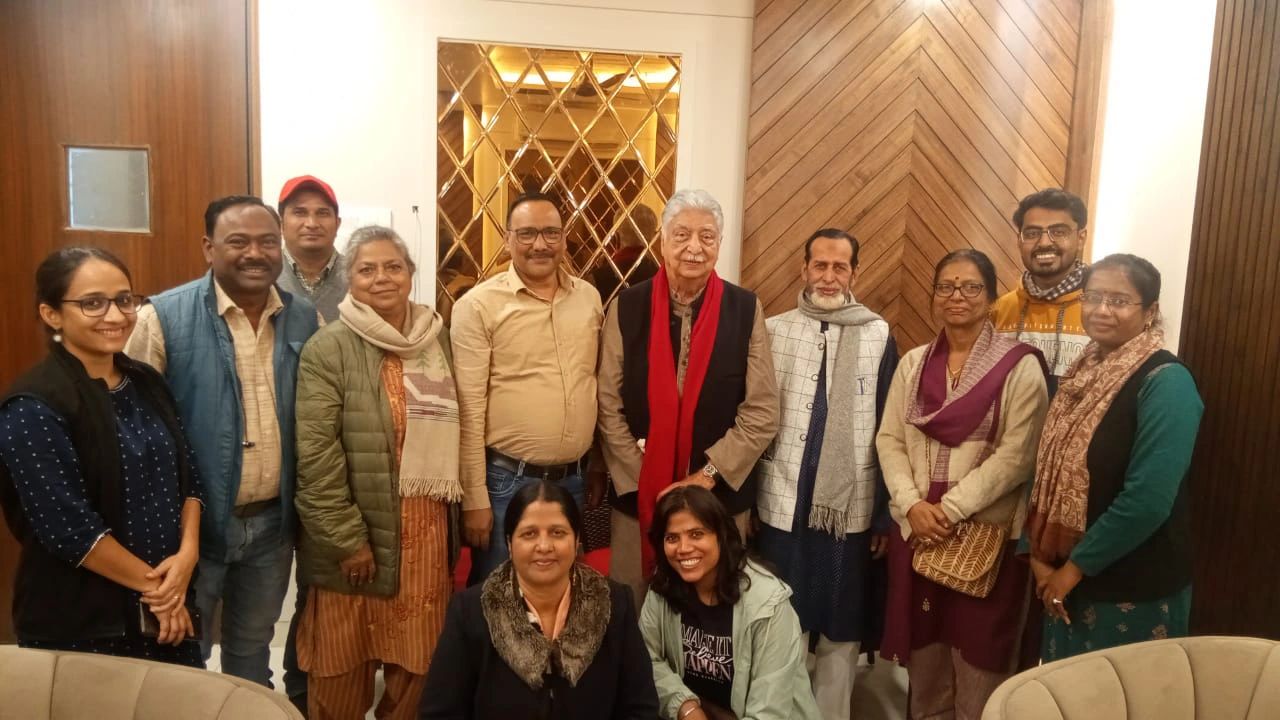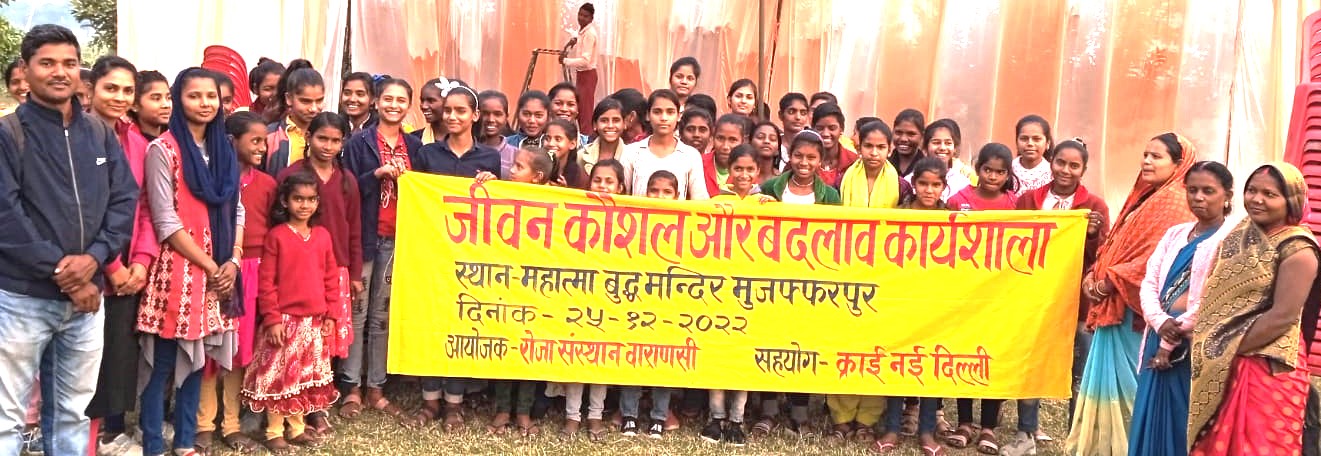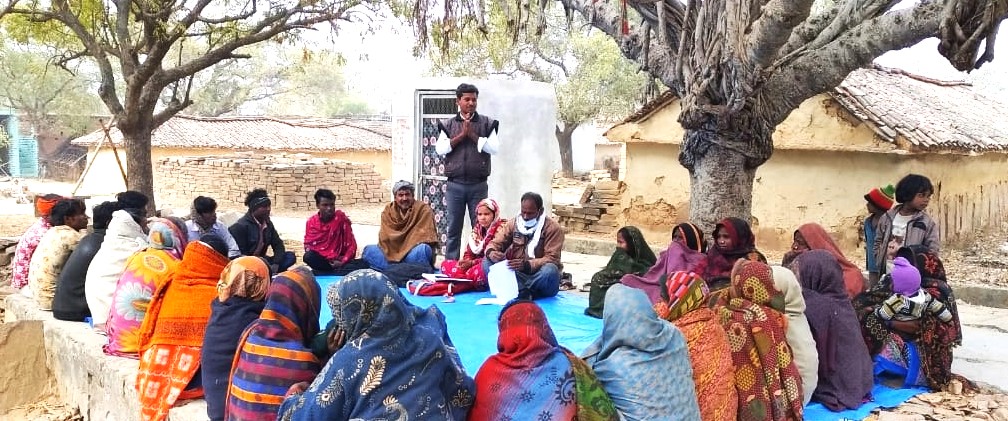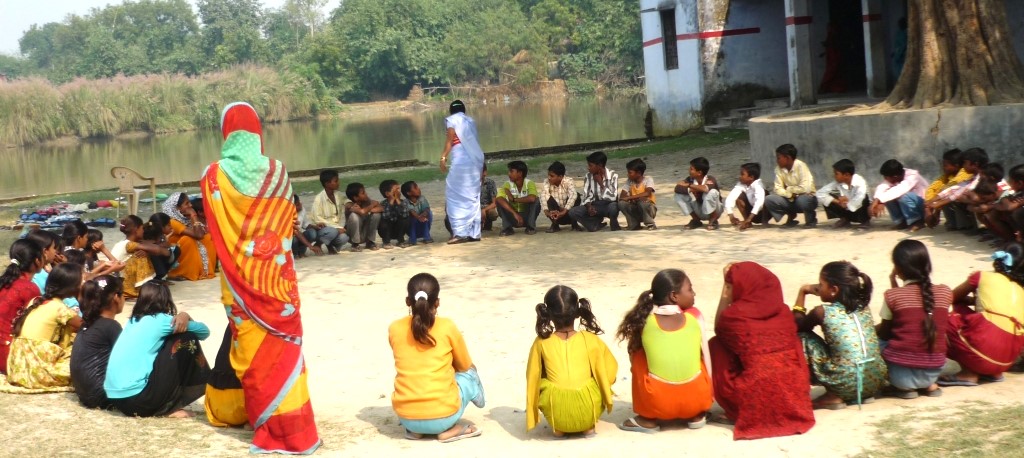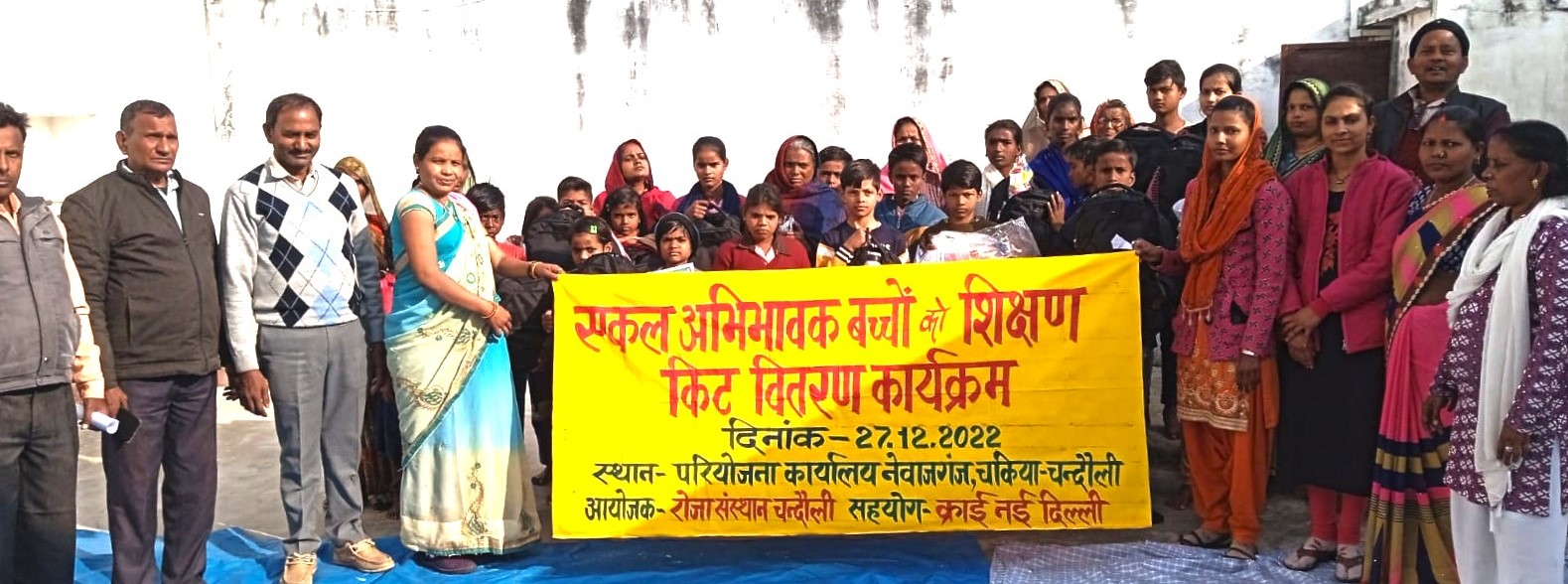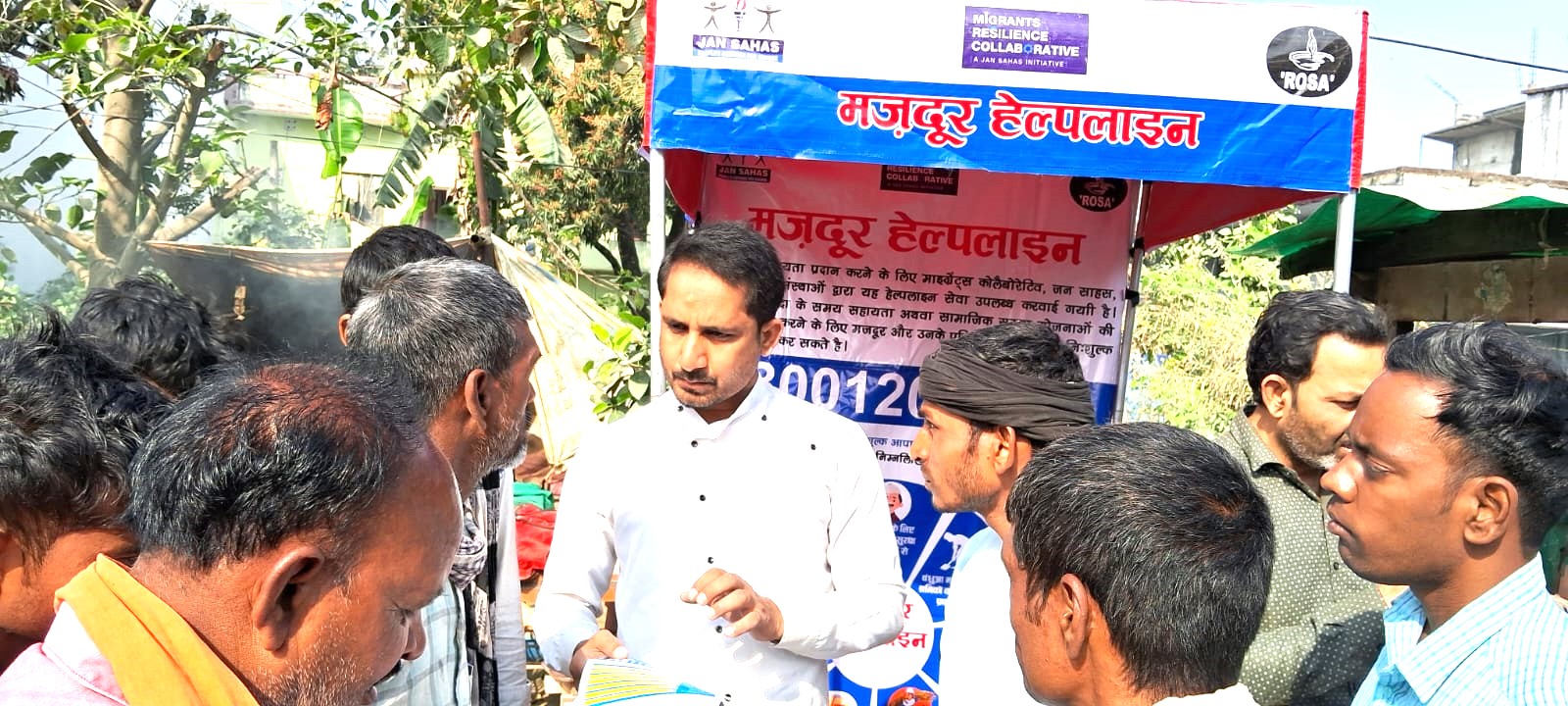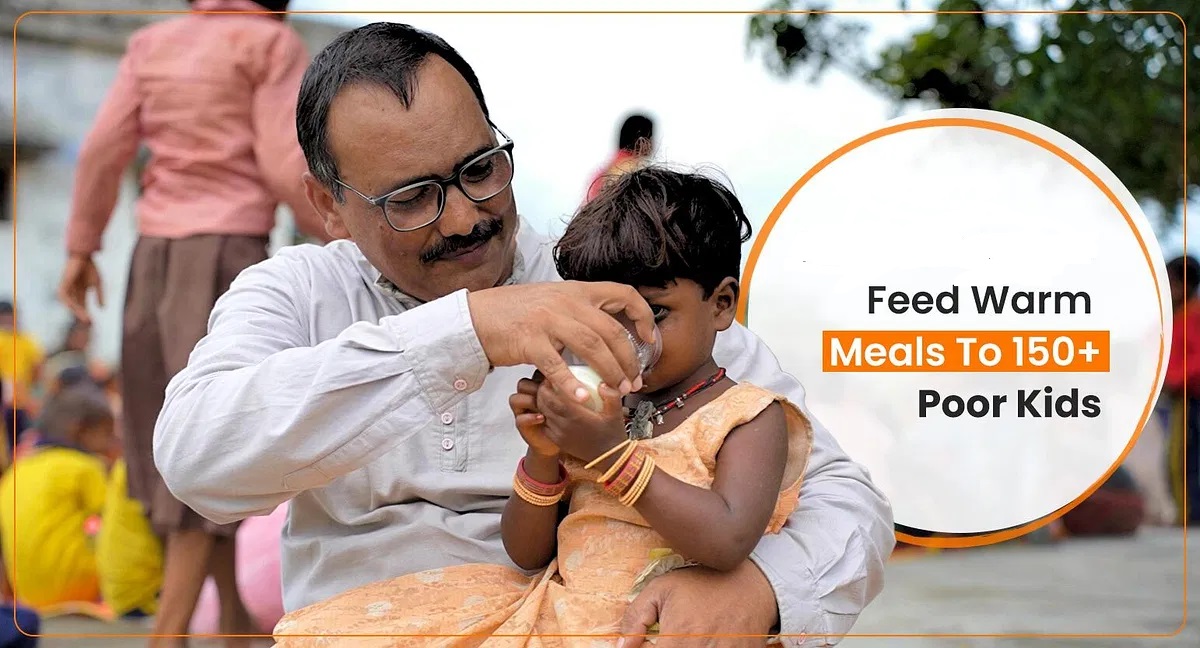
Rural Organization for Social Advancement
ETHICAL CODE OF CONDUCT - ROSA SANSTHAN
- INTRODUCTION:
- PURPOSE OF THIS CODE OFETHICS& WHY ETHICS: ROSA expects that all team members of the organisation follows, certain behaviours & norms at workplace & otherwise, which are in tandem with the organisational commitments, principles and values. This ethical code of conduct is thus defined to ensure and protect the image, trust, & credibility of organisation, as the behaviours of individuals can have direct or indirect implication on the organisational image, trust & credibility
- TO WHOM DOES THIS CODE OF ETHICS APPLY : The policy is applicable for all level of members (right from the Board till grass root level worker including the volunteers) as per the organisational hierarchy.
- FUNDAMENTAL VALUES: ROSA has defined certain values and believes which should guide each individual to maintain their conduct which includes:
-
- To respect each other at every level of the society,
- Practice & Promote feelings of equality,
- Promote & Ensure equal opportunities,
- Transparency in development works,
- Dedication towards target.
- Self discipline & responsibility.
- ETHICAL CONDUCT:
- LAW ABIDING: Each member of the organisation is expected to abide the law of the land, fall in conflict with the law, take law in own hands or become part of behaviour/crime which are against the law. Such behaviour shall be considered as a zero tolerance issue.
- UPHOLD POSITIVE SOCIAL & CULTURAL VALUES: Social and cultural values which are in alignment with organisational values and principles should be upheld, protected & promoted. Values which are against the organisational philosophy & principles should not at all be promoted or practiced.
- NO CORRUPTION: All members of the organisation are expected to be free from any form of corrupt practices either by self or together with other members. Corruption here not necessarily means only finance but also shall include non financial benefits S/He might receive/take for any service.
- MAINTAIN TRANSPARENCY: Each member of the organisation is expected to remain transparent in his/her conduct, work, decisions & overall functioning and should not hide/mislead/misguide.
- DO NO HARM : No employee through their words, deeds or actions should harm anyone
- AVOIDING CONFLICTS OF INTEREST
- Family and personalrelationships
- The organisation as a precautionary measure, the organisation shall try to avoid placing an employee in their own village/community.
- No member of the organisation should neither take benefits of a project/program by self or should their immediate family members or their relatives.
- In case, where the family fits into the eligibility criteria to receive the benefit of the program, the concerned employee shall not be taking the decision and organisation shall represent any other member of the organisation to decide whether to offer a benefit to the related members of employee or not.
- If any members relative/closed relation members are appearing for an interview at ROSA, the organisational member should not be in involved in the recruitment process/interview panel.
- Disclosure - In any process or benefit of the organisation, if there is family relationships involved, it shall be the liability of the concerned team member to disclose their relationship with the concerned beneficiary of the process or benefit. The organisation has the right to decide whether or not to offer the opportunity or benefit in case of family relationship.
- No procurement should be done with vendors who have family or personal relationship with an organisational employee. In case a purchase has to be done from such vendor, it should be duly approved the the organisational authority.
-
- Gifts, awards and payments:
- No employee should demand/take gifts or payments from any vendors or beneficiaries associated with the organisational projects/programs which will have influence on getting them benefitted from program.
- If there are offers or additional gifts received along with purchase of goods or services using organisational funds, this should be disclosed by the employee to the organisational authority. The organisational authority shall decide whether it can be used by the individual or shall be submitted to the organisation.
- Any award (financial or non financial) received by any employee organisation because of their achievements while working for the organisation, shall be liable to submit the award money/valuable items received by them to the organisation. The organisation will have the right to decide on whether to share the award money or value with the individual.
- If an employee receives any award in his/her personal capacities and not because of the contributions of the organisation, they can retain the award money/items on their own. Organisation does not expect the employee to submit such award money or items. However, if they willingly wish to contribute or share the award money, they are free to do so.
-
- Outside employment, external activities and board positions:
- No full time employee is allowed to take up any outside employment, however they can take up side businesses (like agriculture, insurance agencies, shops etc.) provided it doesn’t conflict and affect the organisational work and their own duties and only can be done after completion of organisational duties.
- In above case, the employee should not use their authority to influence community and/or other stakeholders to gain benefit for their side business.
- All employees are allowed & motivated to become part of various government committees or bodies, but with due permission from organisational authorities.
- All employees are motivated to act as Resource Persons/Consultants for external agencies, but with due permission from organisational authorities.
- In both the above cases i.e 6.3.2 & 6.3.3, any benefit/honorarium received through such positions should be disclosed to the organisation.
-
- Political activity:
-
-
- No member of the organisation should get involved in/promote/influence any political activities while being on duty or otherwise which might have negative impact on organisational identity and the programs of the organisation.
- If any member will to take up any political/electoral positions, they will have to resign from ROSA before taking up such positions.
- No employee should get involved in any form of political campaigning, canvassing, influencing community.
- No employee should use their influence over the community to benefit self/ family members in electoral process (in case family members are fighting for elections).
-
- Financial interests and disclosure :
-
-
- Personal credit purchases from organisational vendors is STRICTLY PROHIBITED. Organization will have formal or informal agreements with Vendors and will have defined process of procurement.
- Personal purchases should not be mixed with official purchases and with official vendors.
- All purchases above Rs. 20000 or Organisational Asset, should be duly approved by Purchase Committee.
- No employee should charge any commission/fees from the beneficiaries.
- No employee should hold/use/keep communities money (like SHG savings/funds/grants for livelihood etc) with themselves and should be used for personal use.
- PROTECTING ORG RESOURCES:
- Money:
- Personal use of Organisational funds/advances is STRICTLY PROHIBITED.
- All employees should immediately submit any amount collected on behalf of the organisation.
- All employees should ensure that advances are settled on time.
-
- Physical assets …………………………………………………………………………
- All employee should hand over office assets to other employees or organisation through a proper process of handing & taking over and should ensure they have proper records of handing over/taking over.
- Employee holding any official assets should be liable to compensate for any damages occurred while it were in their position and spoiled due to their act of negligence.
- Employee should not at all give official assets to an external person.
- No employee should take/use idle equipments/assets of organisation without due permission from the authority.
-
- Vehicles :
- Employee should not at all give official vehicle to an external person and if given without permission, they shall be liable to disciplinary action.
- Employees should safely handle the official vehicle with care (including driving, timely maintenance.
-
- Time:
- Employees should not waste official time of self as well as of others.
-
- Data and records:
- No employee shall share any data or organisational records with anyone, without due permission from Chief Functionary.
- All official communications should be made through the official mail ids assigned by the head office.
- All employees should give the organisation address as the correspondence addresses at any platform they represent.
-
- Confidential information:
- All employees, shall follow the confidentiality clauses as per the Child Protection policy & HR policy.
-
- Fraud:
- Employees should be beware and vigilant of fraudulent emails, phone or dubious persons.
- Employees should not collect any money on pretext of getting any sort of benefit from the organisation or get involved in any fraudulent activities.
- PROTECTING ORGANISATION INTEREST:
- Digital media, publications and public speaking: All employee should be cautious while interacting with media or any public platforms. They should not make any personal views/remarks, commitment or statement which are against the organisational philosophy and principles. If not sure, they should always consult with Senior Management.
- Dealing with third parties – external partners, donors, contractors, NGOs and vendors : No employee should make any commitments to external partners, donors, contractors, NGOs or vendors if they are not authorised to and are not aware of the consequences of such decisions.
- BEHAVIOURPROTOCOLS: As per Annexure
- CONDUCT OUTSIDE OF WORK AND POST-EMPLOYMENT RESTRICTIONS
-
- Outside of working hours : Being part of a social organisation, each employee is expected to set a right precedence in the community by way of their conduct. Employees conduct, while on duty or otherwise has a great implication on organisations image & credibility and therefore, ROSA expects each of its members to follow ethics even outside of the working hours.
- Post-employment restrictions: The Ex-employees should not access the organisational property, community or events of the organisation without due permission. Ex employees should not use official emails. Employees should leave official social media groups on their own. Ex - employees should not use name of ROSA for dealing with stakeholders/vendors to get benefits/work done.
- OBLIGATIONS AND CONSEQUENCES : Violation of the ethical code shall be liable to disciplinary actions as articulated in the HR policy of ROSA.
- REPORTING WRONGDOING AND PROTECTION FROM RETALIATION .
-
- Duty to report : All members of the organisation are expected to report any violation of ethical code to any of the available platforms in the organisation or directly to the Chief Functionary. Knowingly not reporting violation shall also be treated as an indiscipline.
-
- Protection from retaliation:
- Organisation will keep the details of the reporter confidential.
- Person reporting shall be given due recognition during performance appraisal.
- Organisation will support such whistle blowers and will stand by them in all circumstances. However, intentional false accusations shall not be tolerated.
- MAKING ETHICAL DECISIONS:
- Organisation shall not compromise to any such decisions which
-
- Are against Organisational ethics, principles and values
- Can be harmful to the target group
- Against the Law of the land (non negotiable)
Approved dated- 08 July 2018
